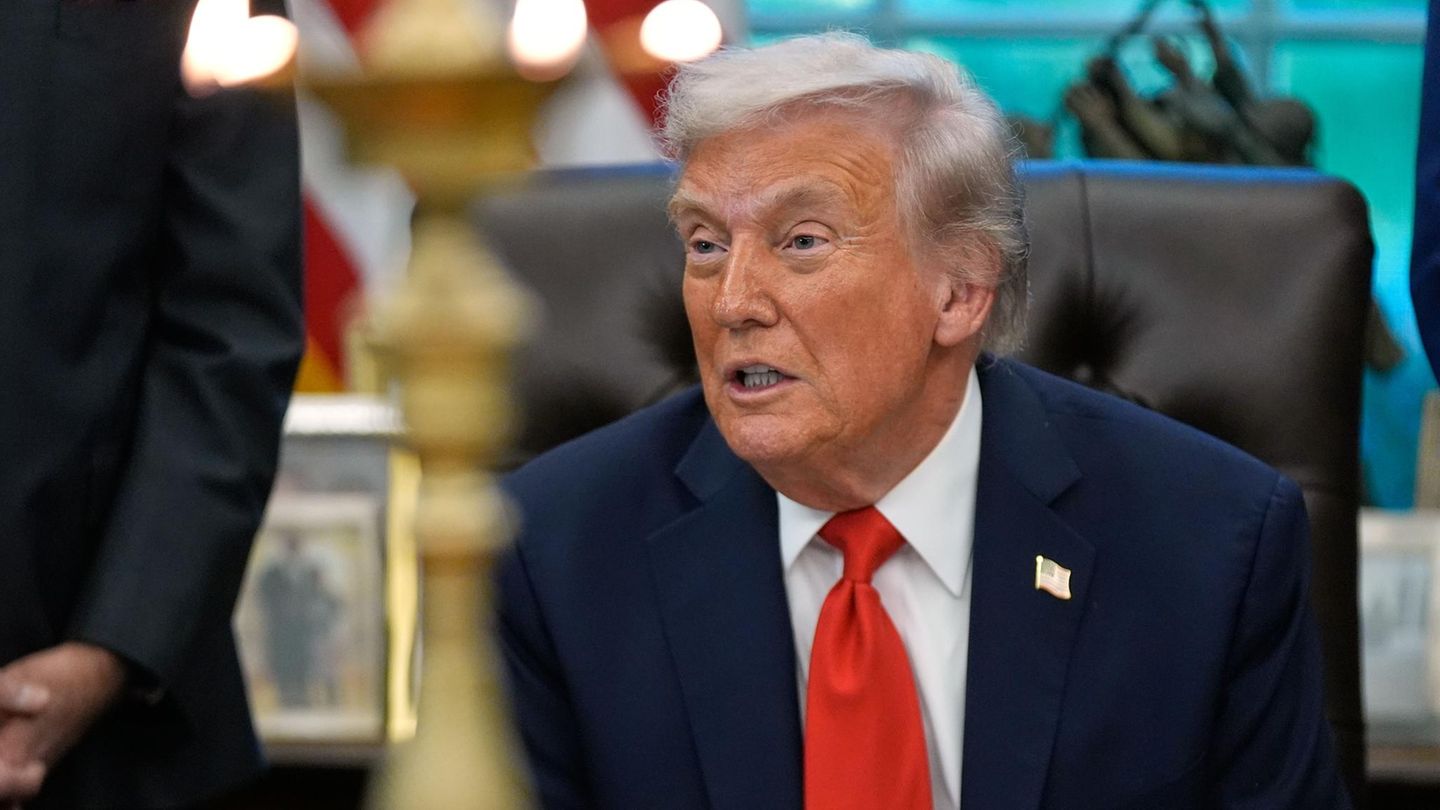After his risky gamble, Macron is left with a shambles. France is threatened with being unable to govern or being taken over by right-wing nationalists.
He wanted to reach high with risky parliamentary elections, but now French President Emmanuel Macron is likely to fall to the ground. Not only is his camp likely to lose its relative majority in the National Assembly and become only the third strongest party. He also, who does not want to go down in history as a pioneer of the right-wing nationalists at any price, could now actually hand over the keys of power to the first far-right government in decades through his poker game.
No matter how the decisive round of voting next Sunday turns out, the ruler in the Élysée Palace, who has so far preferred to hold all the reins in his own hands, will have to share his power. Whether with Marine Le Pen’s Rassemblement National (RN), which triumphed in the first round, or the second-placed new left-wing alliance Nouveau Front Populaire – that depends on two factors over which Macron has little influence: the strategic positioning of the parties and voting behavior.
Firewall against right planned
Only 76 of the 577 seats in the National Assembly were awarded in the first round. The rest will be decided in runoff elections. All those for whom at least 12.5 percent of the registered voters in their constituency voted will be eligible.
The big question: Will all parties beyond the extreme right in all constituencies with three potential candidates for the runoff really agree to withdraw their third-place candidates and make a recommendation for the second strongest challenger to the RN candidate? On election night, the left-wing alliance and Macron’s center camp announced that they would erect such a firewall against the advance of the extreme right.
It remains to be seen how the deeply divided conservative Republicans, who are wavering between an alliance with Le Pen and a clear stance against the far right, will behave. The practice of alliances of convenience for the second round of voting is a tradition in France with its majority voting system. It remains to be seen to what extent this can now slow down the right, given the high approval ratings for the right.
Macron’s strategy did not work
There is no indication that support for the right-wing populists is crumbling after the RN’s record result in the first round of voting. According to a survey by the Ipsos institute, 74 percent of voters in France are dissatisfied with Macron. And his strategy of disqualifying the parties to the left and right of his center camp as unelectable extremists or their allies has clearly not worked.
The liberal Macron and his camp in parliament, which according to forecasts will be significantly smaller from next Sunday, are definitely facing an enormous challenge. Because even if they succeed in stopping the right’s grip on power by joining forces with the left-wing alliance, the two camps, which have so far mostly had opposing ideas, would have to come together to form a government program. With the rejection of the extreme right as the main common denominator, this threatens to end in political chaos and stagnation.
EU calls for austerity instead of additional spending of billions
France’s high level of debt leaves little scope for costly new visions for the future. Just two weeks ago, the EU Commission also launched an excessive deficit procedure against France because of excessive new debt. Instead of lavish additional spending amounting to tens of billions of euros, with which the left wing campaigned for votes, France should actually be pursuing a radical austerity course that even Macron has not been prepared to do so far.
It seems clear that the young Prime Minister Gabriel Attal, in whom Macron had high hopes when he was appointed at the beginning of the year, will probably not be able to remain in office given the potential future power constellations. But it is unclear who Macron could appoint as Prime Minister should the coup of a kind of grand coalition against the right surprisingly succeed. The left-wing alliance, which includes the Greens, Communists, Socialists and the Left Party, did not itself enter the early parliamentary elections with a leading candidate – and no one is considered a favorite. What is certain, however, is that the future Prime Minister will have more influence given the changed balance of power. Macron, on the other hand, will lose power.
Right-wing government a bogeyman for Berlin and Brussels
From the perspective of many leftists, French people with a migration background and probably also Berlin and Brussels, an RN government would be a much greater nightmare than a blocked France. Not only do the right-wing nationalists have little love for their close partner Germany, they also want to massively curb Brussels’ influence. Instead of wanting to strategically not rule out too much in defense of Ukraine against the Russian aggressor, like Macron, the party with its alleged closeness to Russia is setting clear limits, for example on arms deliveries.
Ultimately, Macron bears the responsibility for the prospects that France is heading towards, which are sometimes perceived as bleak. It was he who initiated the new elections in the first place, either out of naivety or overconfidence. His tactics for more power have failed. A shift to the right and a shift in power are certain for France. Regardless of the outcome of the run-off elections, one thing is certain: this time, Macron, a strategist with a tendency to impulsiveness, has gone astray.
Source: Stern
I have been working in the news industry for over 6 years, first as a reporter and now as an editor. I have covered politics extensively, and my work has appeared in major newspapers and online news outlets around the world. In addition to my writing, I also contribute regularly to 24 Hours World.




